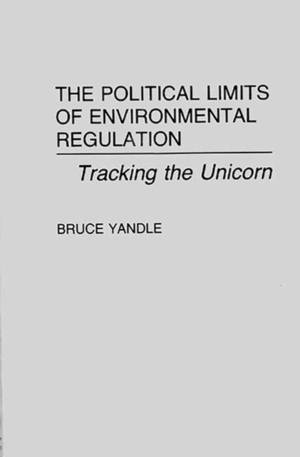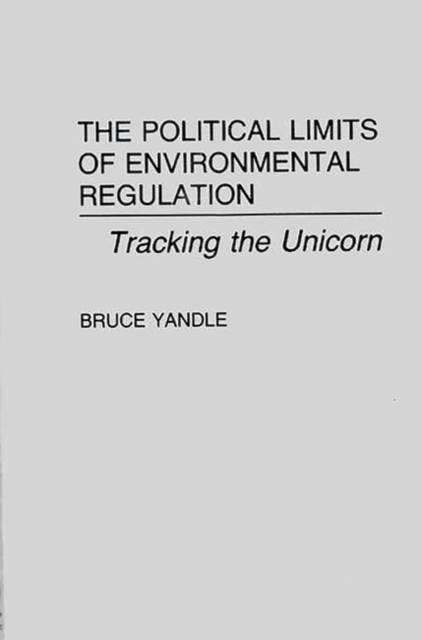
- Afhalen na 1 uur in een winkel met voorraad
- Gratis thuislevering in België vanaf € 30
- Ruim aanbod met 7 miljoen producten
- Afhalen na 1 uur in een winkel met voorraad
- Gratis thuislevering in België vanaf € 30
- Ruim aanbod met 7 miljoen producten
The Political Limits of Environmental Regulation
Tracking the Unicorn
Bruce YandleOmschrijving
In The Political Limits of Environment Regulation, Bruce Yandle analyzes the Environmental Protection Agency's (EPA) twenty-year record and concludes that the agency's monopoly powers have not always been conducive to positive environmental results. In fact, Yandle argues, special interest groups and lobbyists have often been very successful in obtaining federal legislation favoring large industries. In constructing his argument, Yandle provides a detailed overview of the EPA's twenty-year efforts at environmental regulation based on numerous empirical investigations aimed at indentifying the chief elements of both major and minor regulatory episodes.
Yandle begins by exploring the origins of the U.S. environmental saga and the status of environmental protection before federal regulation. He goes on to discuss the rise of the federal regulator and such issues as cost minimization and the move to manage hazardous and toxic wastes. Turning to a discussion of the effects of U.S. environmental regulation efforts, Yandle concludes that the EPA has not been as effective as it could be and recommends that state and local governments be given more responsibility for ensuring environmental protection. He suggests further that the country return to competitive regulation, cost-efficient pollution control legislation, flexibility on a state level, and divestiture of the EPA's monopoly in this domain, arguing that these combined actions will enable the EPA and state legislatures to control and protect the environment more efficiently.Specificaties
Betrokkenen
- Auteur(s):
- Uitgeverij:
Inhoud
- Aantal bladzijden:
- 192
- Taal:
- Engels
Eigenschappen
- Productcode (EAN):
- 9780899304311
- Verschijningsdatum:
- 21/09/1989
- Uitvoering:
- Hardcover
- Formaat:
- Genaaid
- Afmetingen:
- 140 mm x 216 mm
- Gewicht:
- 399 g

Alleen bij Standaard Boekhandel
Beoordelingen
We publiceren alleen reviews die voldoen aan de voorwaarden voor reviews. Bekijk onze voorwaarden voor reviews.











